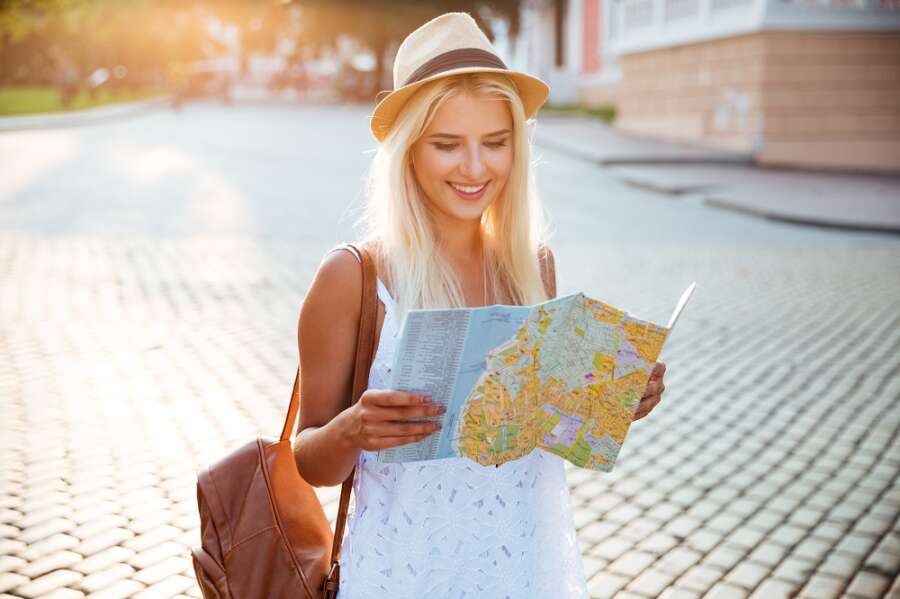
By Josh Shames, Managing Partner, Hall & Partners

Josh Shames, Managing Partner, Hall & Partners
For invaluable insight into how businesses and brands can capitalise on the opportunities of our ever-changing post-COVID world, you simply need to train your sights on the travel and tourism industries.
It’s here where we are seeing seismic shifts in the way brands are transforming, not just the experiences they offer to consumers, but also those offered internally to their staff. Exactly how they respond to changed demands, expectations, and – crucially – values, could define how companies succeed following these past challenging months.
While different parts of the world are emerging at different speeds from our collective hibernation, there’s much to learn from what’s happening in the US where service industries have been rapidly re-opening.
We’re seeing a two-way behavioral shift. Brands are having to be more responsive and responsible in what is now a far more competitive environment. In a world increasingly shaped by conscious consumerism, which places a premium on values such as integrity, fairness, and safety, successful companies are those that clearly demonstrate how ‘doing the right thing’ matters.
Because people have waited so long to get away, there is pent-up demand. This is happening just as the industry is suffering staff shortages, supply-chain issues, and concerns over retaining the brightest and best of their teams.
So, brands need to respond to these issues and be responsible, too. They need to be prepared to meet consumers’ needs while ensuring that, internally, their duty of care excels. How they deal with these issues, measure their progress, and then refine and adapt their offerings will affect their reputations in more acute ways than they did in more forgiving pre-pandemic days.
What problems are the tourism industry facing?
We are grappling with brand and communication solutions for a series of new client dilemmas and questions are being asked.
- Will we see the continued rise of ‘small travel,’ trading in the big, long-distance trips for local discovery?
- Will the desire to escape from the crowd mean that city breaks need to offer something new?
- Will people place greater trust in travel agents instead of arranging do-it-yourself trips that are fraught with the uncertainty of cancelation or unknown conditions and limitations due to COVID-19?
- How will sustainable tourism continue to develop in these more conscious times and is there a way back for business travel?
- What kinds of rewards and loyalty offers can entice people to spend more money on brands, especially at a time when they are placing such a premium on safety-first?
- What of the concept of bucket-list and ‘revenge travel’? How can brands appeal to the new desire for consumers to splurge on once-in-a-lifetime getaways that they’ve always dreamed of, or which have become a defiant reaction to delayed trips and lockdown blues?
Hospitality headaches – How travel and tourism brands are adapting
Players in the travel and tourism industries have built their experiential offerings over long periods, but in some respects, that counts for little right now. People want different experiences, they want to feel valued in new ways, they want to see brands behaving in new ways and responding to the challenges and changing values of this moment in time.
Brands are providing, for instance, more personalised offerings; a VIP-style experience that isn’t just the preserve of VIPs. Delivering a service that incorporates greater attention to detail will make those experiences more enjoyable, memorable, and meaningful. Virgin Hotels, for example, has a rewards program they call ‘The Know.’ Beyond offering typical perks like room upgrades, people can share their preferences and the hotel will stock their mini fridge with their favorite beverages, match their pillow with their sleep style or leave treats for their pet.
They are responding to the inevitable challenges that come with demand spikes – along with reduced staff and supply-chain delays – with empathy rather than seemingly bureaucratic answers. There’s often a line for the famous lobster rolls at Red’s Eats in Wiscassett, Maine. In the heat of summer, the sun beats down on waiting customers and can be brutal. So, to make the wait a little more comfortable, Red’s employees pass out umbrellas and water. Those little touches can turn a potentially damaging experience into an affirming one.
And those who work for these brands share the same aspirations. The pandemic has highlighted long-standing issues present in the hospitality industry such as minimum wages, long and erratic working hours and a lack of benefits. Having faced up to these and the need to entice workers back to the industry, some restaurants are paying their staff more, giving them benefits and perks that didn’t exist before, and treating them in more responsible ways. The Southerner, a favorite fried chicken joint in the resort town of Saugatuck, Michigan, is now offering its staff paid time off, health insurance and higher wages to retain and attract their kitchen and waitstaff. &Pizza, the pizza restaurant chain with over 35 outlets on the East Coast has expanded its benefits including paid time off for Election Day. With starting wages beginning at $16 an hour, hiring staff hasn’t been an issue as it opened 11 new locations during the pandemic.
There’s been a real shift in mindset, too. Good employers now recognise that they need to support employees’ wellbeing, partly because it’s the right thing to do, but also because it’s good for business. Customers and potential recruits expect it.
That’s been a key learning curve. For brands to offer these richer and more fulfilling experiences to their customers, they need to do so in tandem with their own teams.
Already, some brands have been suffering the consequences of ignoring this new business imperative with absenteeism, poor service, negative feedback, and tarnished loyalties causing them to lose that competitive edge.
Customer experience (CX) relies on behavioral data
What we’re seeing in the travel and tourism industries will become commonplace as other sectors rebuild. Brands need to anticipate these behavioral changes and be better prepared to respond. Changing the way they operate, being more willing to offer recompense in the moment and having less rigidity in the way that they operate in order to provide customers with a more personalised experience.
The travel and tourism industry needs a much more complete idea of the entire customer experience. Make customer-centricity the best that it can be by looking at the behavioral data, understanding the market and human context, and ensuring that you have the capacity in place to satisfy those needs. Always stay close to the customer – before, during and after their interactions with your brands. Be more empathetic and human both in how you respond to challenges and in how you surprise and delight.
Leading conscious consumerism
We know instinctively what conscious brands should represent. We know how to navigate this new conscious agenda. Hall & Partners has been studying it for some time and it’s revealing that so few players in this industry made our recent Top 100 Conscious Brands. Perhaps the challenges are more acute and adapting to this new responsible–responsive paradigm is more complex.
The world is unpredictable right now. But our desire for enjoyment, experience, and indulgence is more certain than ever. The brands who understand this opportunity, combined with the changed expectations and needs of their customers and staff, will be those who lead this new conscious consumerism.
Values have shifted, demands have risen, but not all brands have responded quickly enough to meet these changes. We know that people have changed, so it’s vital that brands reassess, measure the pulse, and understand what people care about.
They don’t just want to rent a home or stay in a hotel, hire a car or fly at a moment’s notice. They want more from these experiences.
The best brands get that. They understand why it’s so vital to stay close to the experience – measuring, tracking, and responding at speed. Staying one step ahead of their competitors.


